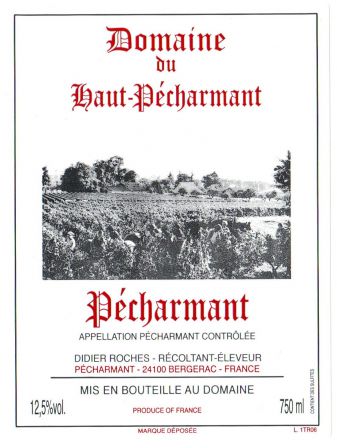- -34%


Clos Peyrelevade offers a smooth white wine from the Rosette appellation, located in the Southwest, within the vineyards of Bergerac and Duras. The 2023 vintage stands out for its freshness and elegance, thanks to a terroir made up of clay-limestone soils and a temperate climate favorable to the vines. Although the exact grape varieties are not specified, Rosette typically includes Sémillon, known for its fruity and floral notes. The estate is also distinguished by its commitment to sustainable viticulture, ensuring authentic wines.
This wine’s character comes from a balance between geological richness and deeply rooted winemaking traditions.
Pairings: The Rosette range offers a smooth white wine with lovely floral notes on the nose and a burst of ripe fruit on the palate. The sweetness at the finish adds a delightful richness. Our Rosette is ideal as an aperitif or paired with fine cheeses.
Taste: The Rosette range delivers a smooth white wine with pretty floral aromas on the nose and a burst of ripe fruit on the palate. The sweetness at the finish brings a lovely indulgence.
Serving temperature: 10-12°C.
Alcohol content: 12%.
Domaine Clos Peyrelevade is a winery located in the Périgord region, in the heart of Southwest France, within the Dordogne department. The estate is renowned for its commitment to quality wines, crafted with care and respect for the terroir.
History and Philosophy: Clos Peyrelevade was founded with the goal of producing authentic, characterful wines. The estate emphasizes an environmentally respectful approach to viticulture, favoring sustainable and reasoned farming methods. The aim is to create wines that faithfully express the terroir of Périgord, while using modern winemaking techniques to maximize quality.
The Terroir: The estate benefits from an exceptional terroir, situated on sunny hills with clay-limestone soils particularly well suited to growing grape varieties. These soils produce grapes rich in flavor and aroma. The temperate, humid climate is also ideal for the cultivation of red varieties such as Merlot, Cabernet Sauvignon, and occasionally Cabernet Franc.
The Wines: While the estate is primarily known for its red wines, it also produces whites and rosés. The wines are made with great respect for tradition, combined with modern winemaking techniques. Clos Peyrelevade wines are often characterized by their finesse, structured tannins, and fruity, woody, and spicy aromas.
Discover the AOC Rosette: Nestled in a natural amphitheater of hills overlooking the city of Bergerac and the Dordogne valley to the north, lies a clay-gravel terroir where one of the region’s most discreet appellations thrives, upheld by a small group of passionate winemakers. This vineyard spans six communes: Bergerac, Creysse, Ginestet, Lembras, Maurens, and Prigonrieux. Established in 1946, like Pécharmant, the Rosette appellation partially shares its geographical area with it. Producing around 5,000 hectoliters in the 1950s, it nearly disappeared before being revived in the 1960s. Made from blends of at least two of the classic grape varieties — Sémillon, Sauvignon, and Muscadelle — this appellation yields a sweet, soft, and airy wine. Prioritizing aromatic finesse over sugar richness, Rosette is best enjoyed young.
Cultivation and Winemaking Methods: The estate favors reasoned viticulture, which means avoiding excessive use of chemicals and carefully managing the soils. Harvesting is done by hand to select the best grapes. The wines are then traditionally vinified with long macerations to extract aromas and tannins. Aging in oak barrels is also carried out to add woody notes and enhance the wine’s complexity.
Visiting the Estate: Domaine Clos Peyrelevade offers an enjoyable experience for visitors, with wine tastings in a picturesque setting and detailed presentations about viticulture and winemaking. It is an ideal place for wine lovers wanting to discover the unique characteristics of Périgord wines.
Conclusion: Domaine Clos Peyrelevade is a place where tradition and modernity come together to create high-quality wines. By showcasing its terroir and adhering to sustainable agricultural practices, the estate produces wines that reflect the richness and diversity of Périgord while offering a unique experience to wine enthusiasts.

Data sheet
You might also like